This post was written by Kaitlin Sampson ’18
As the semester ends it’s important to reflect on the amazing amount of work we’ve accomplished — and the fun we’ve had. After spending our days in class and our nights reading, writing, and studying it’s hard to believe we might have a free minute, but there’s always time for a little fun. This semester The Sustainable Innovation MBA cohort enjoyed a variety of activities outside the classroom. Here’s a small recap of the many events and activities we participated in outside of The Sustainable Innovation MBA classroom.
Hiking & Biking and More
 With some very experienced hikers in this year’s cohort we’ve had a handful of successful hikes including Mt. Mansfield and Starks Nest. Other classmates have hit the road and enjoyed a charity bike ride for Old Spokes Home and one of our very own classmates, Becky Miller, led a local yoga class that many attended. Being a graduate student at UVM means you get to enjoy a beautiful landscape and a vibrant community. Beyond the university offerings, Burlington has a variety of outdoor offerings for everyone.
With some very experienced hikers in this year’s cohort we’ve had a handful of successful hikes including Mt. Mansfield and Starks Nest. Other classmates have hit the road and enjoyed a charity bike ride for Old Spokes Home and one of our very own classmates, Becky Miller, led a local yoga class that many attended. Being a graduate student at UVM means you get to enjoy a beautiful landscape and a vibrant community. Beyond the university offerings, Burlington has a variety of outdoor offerings for everyone.
Intramural Sports
 During the semester, almost half of our class participated in intramural sports offered by campus recreation. Campus Recreation offers a variety of options from multi-week team sports to one-night clinics, all free, or practically free. As a class we competed in broomball, kickball and volleyball. Games are weekly and the games and the season-ending tournament usually last from 4 to 6 weeks. While we didn’t take home any campus-wide championships this semester, we won some games, worked off some steam and got a little exercise, which is always nice after sitting in class for most of the day. There were also awesome events like a “Learn How to Curl” event in which a local curling club taught us the basics of curling. Due to our busy schedules, we won’t be joining the 2018 Winter Olympics, but we might shoot for the 2022 Winter games.
During the semester, almost half of our class participated in intramural sports offered by campus recreation. Campus Recreation offers a variety of options from multi-week team sports to one-night clinics, all free, or practically free. As a class we competed in broomball, kickball and volleyball. Games are weekly and the games and the season-ending tournament usually last from 4 to 6 weeks. While we didn’t take home any campus-wide championships this semester, we won some games, worked off some steam and got a little exercise, which is always nice after sitting in class for most of the day. There were also awesome events like a “Learn How to Curl” event in which a local curling club taught us the basics of curling. Due to our busy schedules, we won’t be joining the 2018 Winter Olympics, but we might shoot for the 2022 Winter games.
Pot Lucks
Who doesn’t love food? Luckily our class is blessed with some amazing cooks and bakers alike, making any pot luck gathering irresistible. From our first fall BBQ, which included way too much food, to our “Simbagiving” dinner we always enjoy gathering outside of the classroom to share a meal. It’s a great opportunity to try some new cuisine and learn more about our classmates. Next up on our agenda is an Ugly Sweater Party to celebrate the end of the semester!
A Little More Fun…
Other Fun Activities have included group trips to get our flu shots, concerts, and many magical trips to the UVM Medical Center’s Harvest Café where we enjoy breakfast, lunch and snacks. Later this winter, we’ll be taking a trip to King Arthur Flour and are looking forward to enjoying our student ski passes at Sugarbush, Stowe and Bolton. All in all we’re busy, but don’t let our many academic blog posts fool you — we still have time for a little fun.

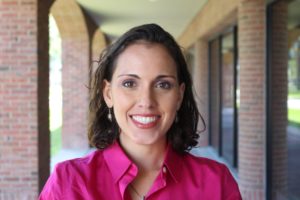

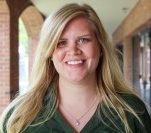
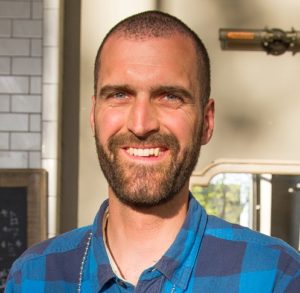
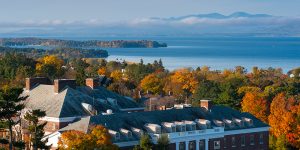
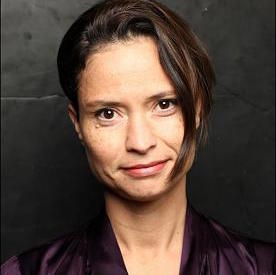
 Originally from Hinesburg, Vermont, Caitlin left to pursue an undergraduate degree at Dickinson College in Pennsylvania and later moved to Boston where she worked at Bain & Company, a top global management consulting company. At Bain & Company, Caitlin worked on analysis and employee engagement as part of the firm’s global human capital team to attract, engage and retain employees. Her success at Bain & Company enabled her to live in Shanghai for several years.
Originally from Hinesburg, Vermont, Caitlin left to pursue an undergraduate degree at Dickinson College in Pennsylvania and later moved to Boston where she worked at Bain & Company, a top global management consulting company. At Bain & Company, Caitlin worked on analysis and employee engagement as part of the firm’s global human capital team to attract, engage and retain employees. Her success at Bain & Company enabled her to live in Shanghai for several years.
 I was MBA-bound for a while. I took the GMAT once and was exploring future options for MBA programs. I did lots of research on two-year programs, which I liked. I was going to push the application process out a year to continue studying for the GMAT, but instead I applied to The Sustainable Innovation MBA. I liked that the opportunity cost of attending The Sustainable Innovation MBA program was only one year and offered me a great change of network, too, away from my primary one in D.C.
I was MBA-bound for a while. I took the GMAT once and was exploring future options for MBA programs. I did lots of research on two-year programs, which I liked. I was going to push the application process out a year to continue studying for the GMAT, but instead I applied to The Sustainable Innovation MBA. I liked that the opportunity cost of attending The Sustainable Innovation MBA program was only one year and offered me a great change of network, too, away from my primary one in D.C.